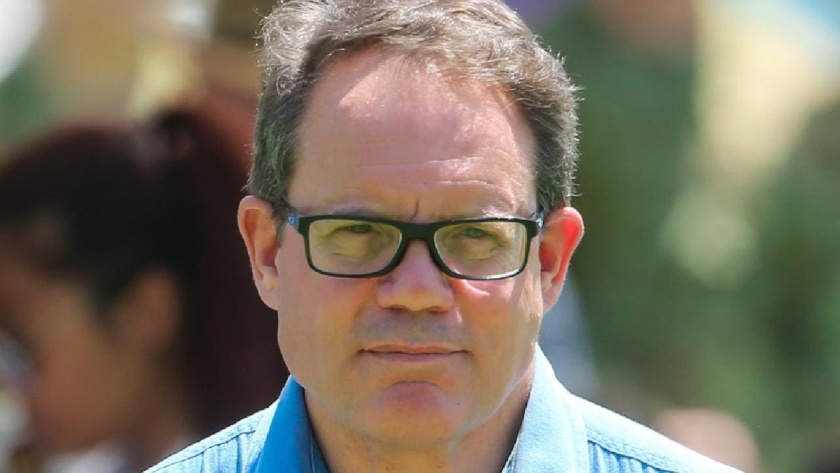Operation COVID-19 Assist is a welcome boost to the ADF’s support to civilian authorities to manage this pandemic. The operation’s scalability will be a key part of its success because, as the situation escalates, the government may need to weigh up country-wide ADF deployments and an operational tempo our armed forces have not seen for years, explains federal MP Luke Gosling.
To continue reading the rest of this article, please log in.
Create free account to get unlimited news articles and more!
ADF personnel currently deployed to manufacture protective equipment, back-fill hospitals and support states and territories with compliance checks for people self-isolating are already making a big difference. But these measures alone won’t be enough to drive down the infection curve.
Some may think it’s overkill to deploy troops trained for war to combat an invisible foe. But we’re not widely testing for community spread at the moment, so it’s much too early to declare victory. If the crisis continues to worsen the exhaustion of our health workforce and integrity of our logistic chains for essentials, including medications, will become serious issues.
The ADF’s efficient logistics capabilities are designed to withstand significant stresses and that starts looking relevant as civilian supply chains creak under the pressure. Military professionals also bring an ethic of discipline that makes them invaluable at such times of crisis. They’re highly trainable and used to assimilating information quickly. This makes them ideal in this fight.
We’re seeing these advantages play out in real-time in other countries battling coronavirus. In China, there’s no doubt the People’s Liberation Army was a key part of the solution to preventing the outbreak from spreading. Almost as soon as Wuhan’s first thousand-bed emergency hospital was built in 10 days, 1,400 PLA medical experts reported for duty to staff it.
As its crisis escalates, the UK has stood up an impressive COVID Support Force of 20,000 full-time and reserve troops on higher readiness to support public services. Their roles range from being prepared to drive oxygen tankers to restocking supermarkets, refuelling petrol stations and escorting food convoys. London also launched an external operation to secure and repatriate stranded Britons.
In the US, many states have used their ability to call up their own National Guard troops, with over 17,000 now deployed. Meanwhile in Europe, field tents and truck convoys have become regular sights across Germany, Italy, Spain, France and critical elements of their national responses.
Our own military response to date is welcome, but much more needs to be done. This isn’t the time to go small or go niche. We need to go hard. Labor’s shadow minister for defence, Richard Marles, has constructively suggested ways the ADF can assist around logistics, helping build makeshift fever clinics and conducting welfare checks on those in need, like older Australians.
Given the scale of the crisis, the government should be considering all of the options at its disposal. Similar to their bushfire deployments, some Army Reserve units will be able to deploy. We should also draw on resourceful not-for-profit sector actors like Team Rubicon Australia, whose work force of mostly veterans are also well placed to respond, as well as trained volunteers from across society.
In the Northern Territory, there are ways in which the ADF can help protect some of our most at-risk people in remote Indigenous communities. There are some calls from within these communities for the deployment of Norforce, a Regional Force Surveillance Unit. A COVID-19 outbreak in a remote community would be absolutely devastating. Norforce could help them stay safely isolated.
This proposal is not based on ungrounded fear. We’ve now seen three positive COVID-19 cases in the Kimberley region in Western Australia. The three highways between the NT and WA have been secured by additional police. Norforce can and should play a role here too, since both the Kimberley and the NT form part of Norforce’s area of operations.
We need to do everything possible we can to prevent a potentially disastrous community spread in remote communities. It’s great that we’ve now seen the Australian Federal Police deploy to support NT agencies to secure remote communities. But we now need the ADF, which brings with it its own valuable capabilities, to support state and federal law enforcement agencies too.
Like the fireys over summer, our healthcare workers are doing an incredible job under difficult circumstances, but they too will tire as the weeks and months roll by. The national cabinet should carefully consider deploying Defence personnel to help hospitals before they start to be over-burdened, relieving exhausted civilians by doing shift work in sanitisation, nursing and testing roles.
It’s wonderful that Aussies are marshalling the Anzac spirit. We now need our modern-day Anzacs to rise to the challenge, as I know they will, of protecting our great nation in this time of crisis.
Luke Gosling is the member of Parliament for Solomon (Darwin).

 Login
Login







